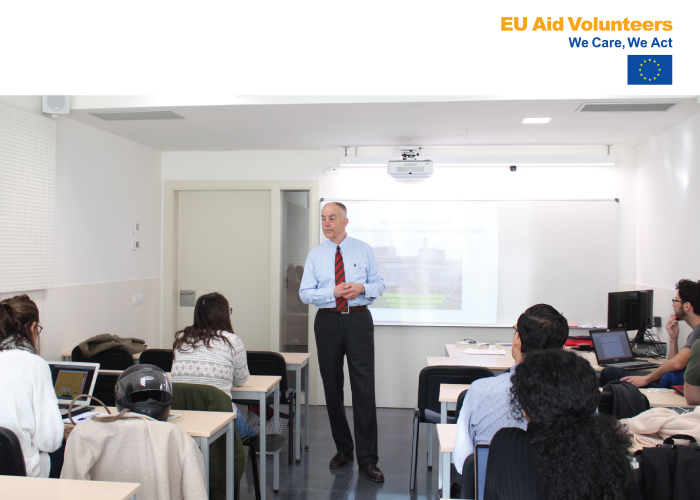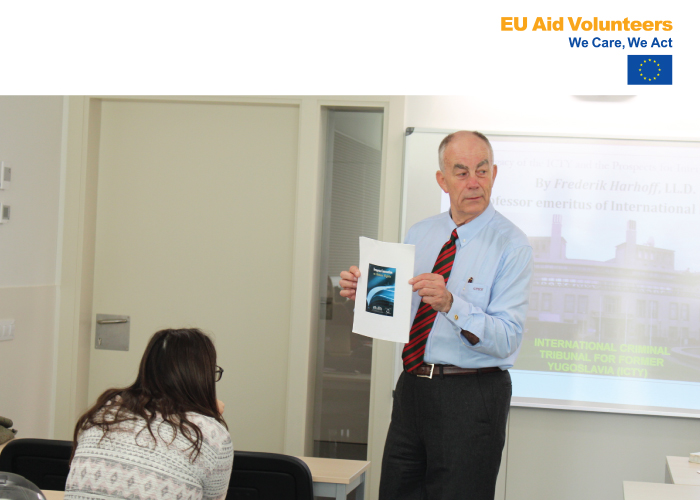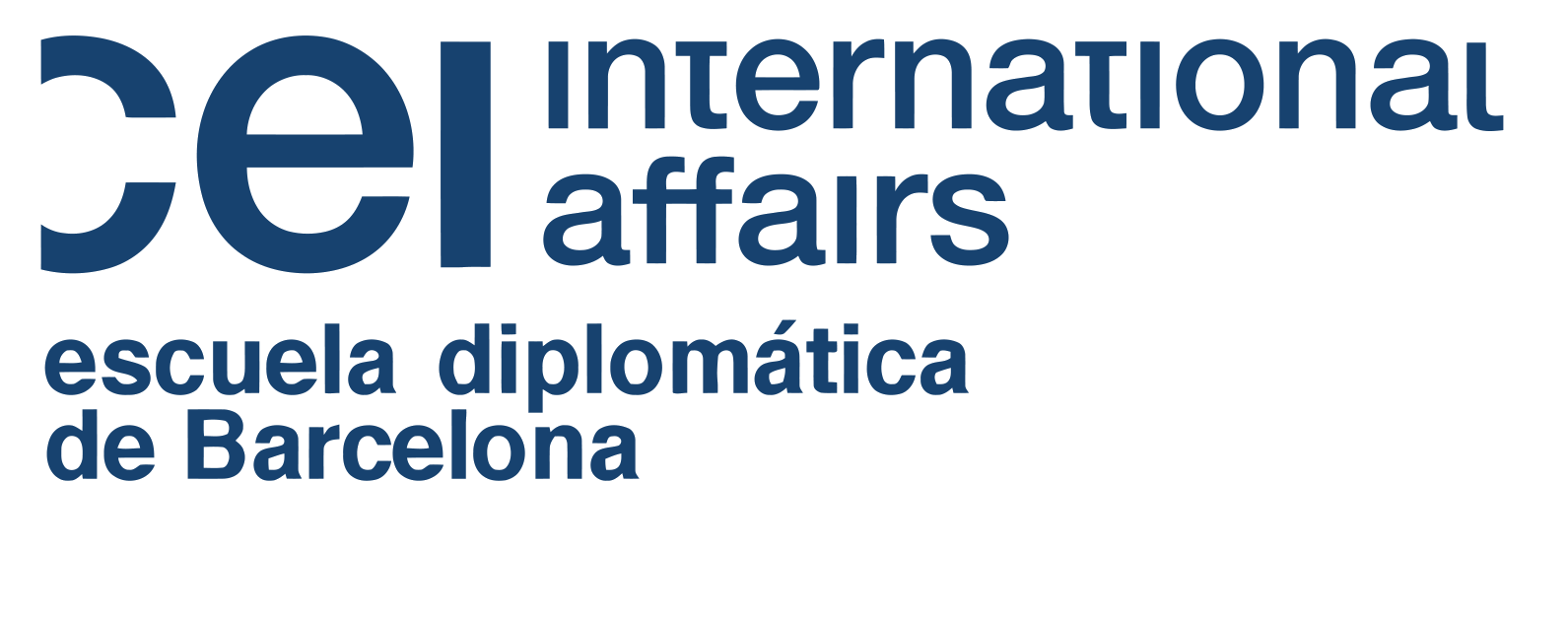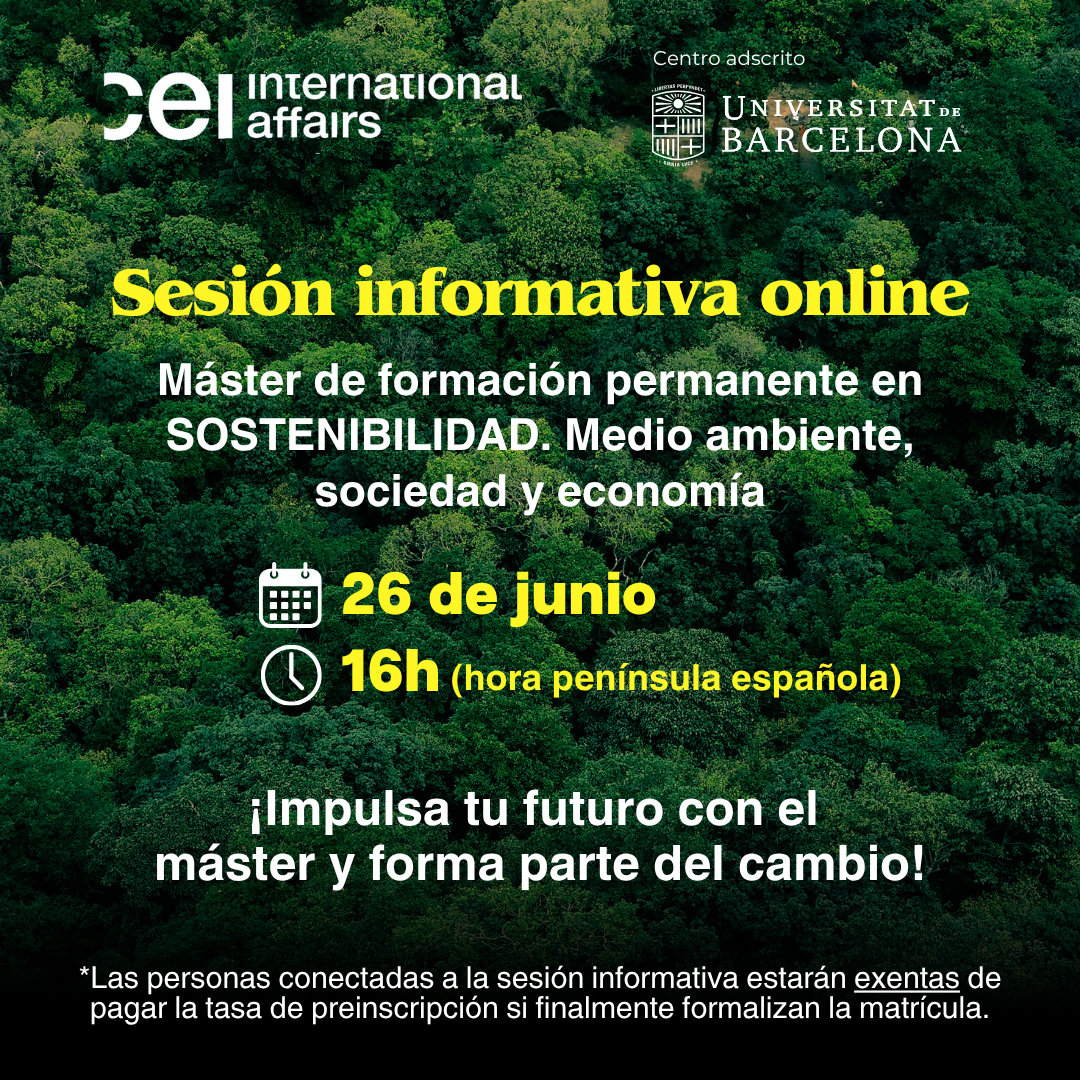We received Mr. Harhoff, Judge of the International Criminal Tribunal for the Former Yugoslavia
Mr. F. Harhoff, Judge of the International Criminal Tribunal for the Former Yugoslavia (ICTY), gave a lecture to the students of the Master in Diplomacy and International
Mr. F. Harhoff, Judge of the International Criminal Tribunal for the Former Yugoslavia (ICTY), gave a lecture to the students of the Master in Diplomacy and International Public Service, within the framework of the HOPE project, organized by the Danish Refugee Council and promoted by the European Volunteer Program, EU Aid Volunteers.
The conference was extremely interesting because it made a path from the International Tribunal for the former Yugoslavia to the International Criminal Court, comparing both judicial mechanisms, especially in what it does to its purpose: This aspect is key to understanding why in the one not there was participation of the victims and in the second yes.
What is the role of the victims?
From the Judge’s perspective, the victims are, or should be, precisely one of the two main reasons that justify objective of International Criminal Law, together with respect for the international legal order, whatever it may be or where it is directed.

At this point, he discussed with the students the current structure and conjuncture of the international order, since this is the framework within which protection (or not) is provided to the victims of international crimes. Therefore, for any expert in diplomacy it is crucial to be knowledgeable about it, after assessing the acts and possibilities that exist in the face of the recognition and attention of victims.
In this sense, and taking advantage of his personal experience -which gives his opinions a qualified value-, Judge Harhoff pointed out the importance for him of a judicial process as a forum in which the victims are heard with the dignity and respect that they deserve.

How much do the victims participate?
Its inclusion in the ICC is undoubtedly one of the main contributions of this organization because its degree of participation is one of the best comparatively speaking, although not without problems.
A comparison was made between the participation of the victims in the ICTY -where their actions were limited to those of witnesses, with all the limitations that this entails, starting with the restriction of speaking only in relation to what was questioned- and the participation in the ICC where they participate on behalf and with their own defense in each and every one of the phases of the process, asserting their interests, not only those determined by the prosecution. Knowing how to participate in processes that can lead to the conviction of those responsible and that this is included in a sentence is already a form of reparation.

